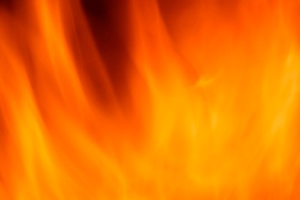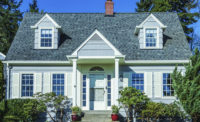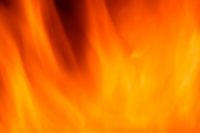 The National Fire Protection Association (NFPA) has joined the National Fallen Firefighters Foundation, Phoenix Society for Burn Survivors, and Common Voices in commending burn survivor Pamela Elliott, R.N., B.S.N. for her pointed op-ed on the necessity of home fire sprinklers.
The National Fire Protection Association (NFPA) has joined the National Fallen Firefighters Foundation, Phoenix Society for Burn Survivors, and Common Voices in commending burn survivor Pamela Elliott, R.N., B.S.N. for her pointed op-ed on the necessity of home fire sprinklers.
Elliott, a member of Common Voices and the Phoenix Society who recently joined the newly formed North Carolina Fire Sprinkler Coalition, was severely burned in a house fire when she was five years old. In her op-ed, Elliott underscores the frequency of these tragedies in homes, where children are at the greatest risk of dying from fire.
"Makes me angry"
"What makes me angry is that the technology to prevent these deaths and injuries exist--they're called fire sprinklers," wrote Elliott. The solution, she notes, is home fire sprinklers, which are a requirement in all model building codes for new, one- and two-family dwellings in the U.S.
"We need to stand united in the message that fire sprinklers save the lives of both citizens and firefighters."
"Pam's heartfelt plea to the fire service and everyone who supports fire safety highlights the importance of advocates," adds Vickie Pritchett, director of Public Fire Protection with the National Fire Sprinkler Association and Common Voices facilitator. "Many times the unexpected messenger is the one who can issue a wakeup call and unite a nation. Pam is right: we all need to become more proactive in our efforts."
Some oppose sprinklers
NFPA’s statistics confirm the life-saving aspects of home fire sprinklers; for instance, a person’s risk of dying from a house fire decreases by about 80 percent when sprinklers are present. Despite the effectiveness of these systems in reducing fire-initiated tragedies, sprinkler opponents nationwide continue to aggressively combat the necessity of these systems.
Using op-eds like Elliott’s to promote residential sprinklers is at the heart of sprinkler advocacy organizations and NFPA’s Fire Sprinkler Initiative, which offers tools to promote local and statewide sprinkler requirements in new, one- and two-family homes. “We commend Pam for her courage to share her story and opinions with the public in the hopes of bolstering sprinkler requirements across the U.S.,” says Lorraine Carli, NFPA’s vice president of Outreach and Advocacy. “Her voice is important in the debate to show how lives can be saved and losses reduced by the increased use of home fire sprinklers.”
For information on the importance of home fire sprinklers and free advocacy tools, templates, and materials, visit NFPA’s Fire Sprinkler Initiative website.
About NFPA’s Fire Sprinkler Initiative
NFPA’s Fire Sprinkler Initiative: Bringing Safety Home is a nationwide effort to increase the use of home fire sprinklers through the adoption of sprinkler requirements in new construction. The website provides resources for the fire service and other advocates who want to demonstrate the need for home fire sprinklers.
About Common Voices
Common Voices is an advocate’s coalition whose members have all been directly affected by fire. By bringing their voices together, they hope to educate others regarding fire and its devastating impact.
About the National Fallen Firefighters Foundation
The National Fallen Firefighters Foundation honors and remembers America’s fallen fire heroes and provide resources to assist their survivors in rebuilding their lives and work within the fire service community to reduce firefighter deaths and injuries.
About The Phoenix Society
Phoenix Society for Burn Survivors is the leading national nonprofit organization dedicated to empowering anyone affected by a burn injury through peer support, education, and advocacy.
About the National Fire Protection Association (NFPA)
NFPA is a worldwide leader in fire, electrical, building, and life safety. The mission of the international nonprofit organization founded in 1896 is to reduce the worldwide burden of fire and other hazards on the quality of life by providing and advocating consensus codes and standards, research, training, and education. NFPA develops more than 300 codes and standards to minimize the possibility and effects of fire and other hazards. All NFPA codes and standards can be viewed at no cost at www.nfpa.org/freeaccess.


